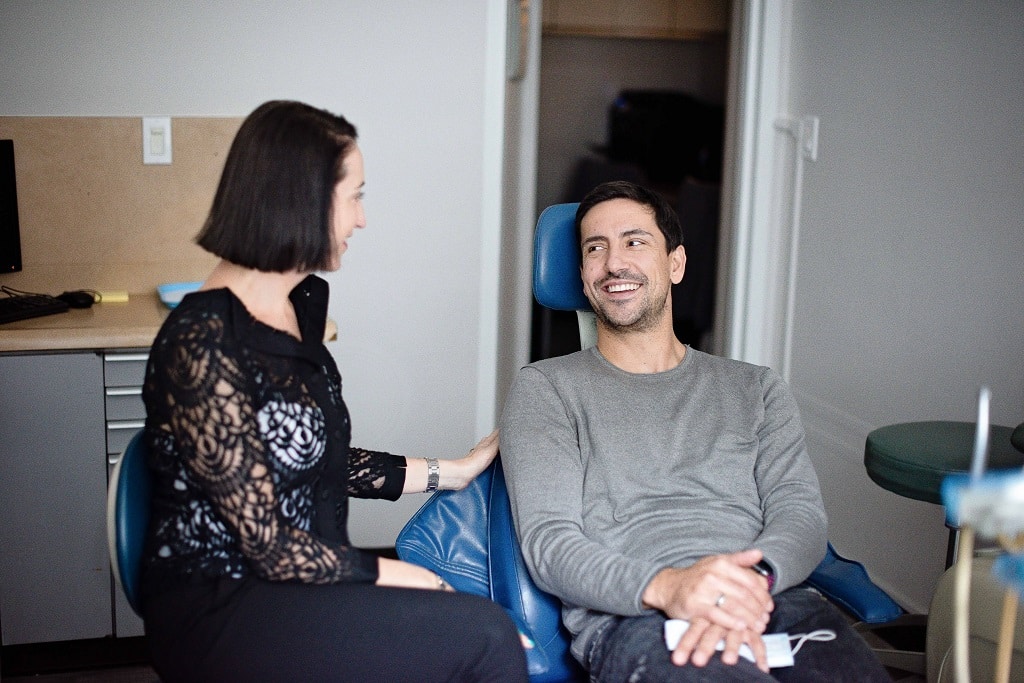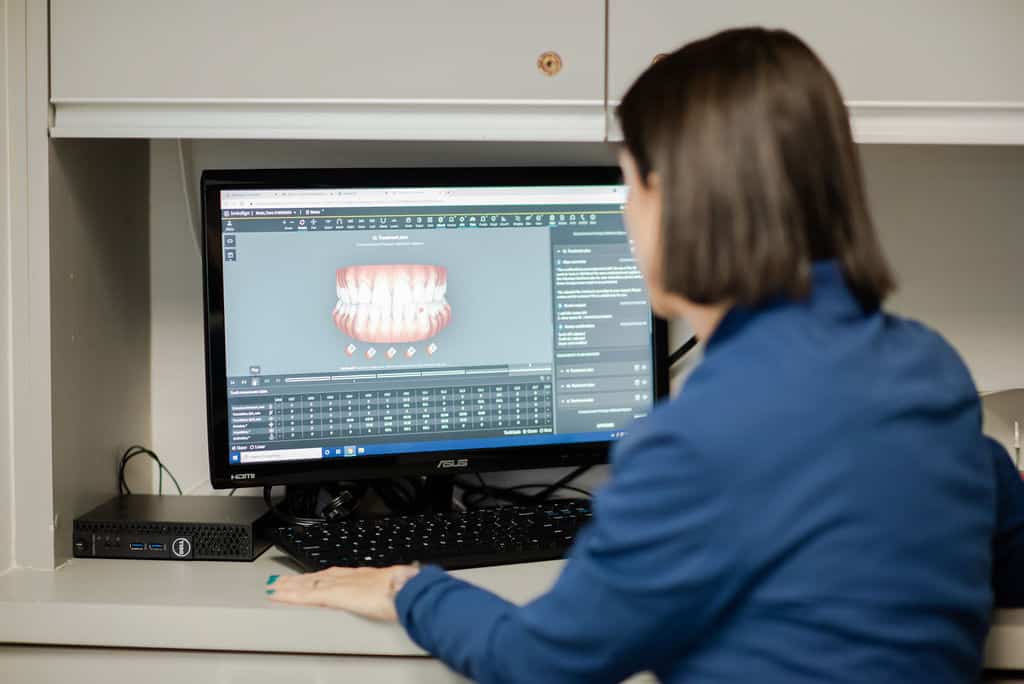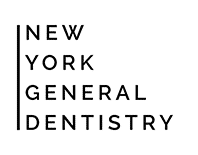What is TMJ Disorder and How Does It Affect Oral Health?
The TMJ, or temporomandibular joint, is what allows your mouth to open and close, as well as speak and chew normally. It’s an intricate, complex network of muscles and joints that contributes to the movement of both your jaw and mouth. The temporomandibular joint is located on each side of the head and connects the rest of the skull to the mobile jawbone (mandible). Each temporomandibular joint has a delicate disc separating a ball and socket mechanism, similar to the knee or shoulder joint. The disc cushions the pressure while the jaw opens and rotates. If a problem occurs in this complex musculoskeletal system, it can feel extremely painful and tense. This is referred to as temporomandibular disorder, TMJ disorder, or simply “TMJ.”
TMJ can be a serious concern when it comes to your oral health because it often is accompanied by problems with grinding or clenching your teeth and jaw misalignment. For this reason, it’s important to have it treated promptly before the problems become long-term and irreversible.
Being able to move your jaw without pain can seem like a dream come true when you’ve been struggling with TMJ disorder (sometimes just called TMJ). When you start to feel pain in your jaw from chewing, yawning, or talking, you’ll likely notice it constantly. This pain can usually mean something is affecting your TMJ. TMJ disorder is a common condition that affects millions of Americans, but thankfully, this condition can be treated easily with the help of your dentist. In Midtown Manhattan, Dr. Inna Chern and her team offer solutions for TMJ disorders to New York, NY patients looking for relief.
Dr. Chern is a fantastic dentist, who makes you feel welcome and safe! I actually have anxiety about going to the dentist, and expected the worst news possible, but she assured me that these things are okay and tend to happen. It’s better to take care of them while we can!
She is a great dentist and I highly recommend her. The office is really nice too!
-Michael O
Symptoms of TMJ Disorder
Jaw Pain and Clicking
One of the most reported symptoms of TMJ disorder is discomfort, especially when chewing. This pain is usually located in the jaw joint on one or both sides of the head and is usually the result of inflammation. Another common symptom that TMJ patients experience is jaw clicking accompanying the pain and a “tired” feeling in the face, neck, shoulder, and upper back region.
Chronic Headaches and Migraines
Some TMJ sufferers experience headaches and migraines as a result of chronic TMJ issues. These are usually caused by tension and inflammation of the delicate muscles that make up the TMJ which include the elevator muscles (responsible for closing the jaw) and the lateral pterygoid (hold the jaw in position so that the teeth can meet).
Jaw Locking
In some severe cases, the jaw can become locked in place because of inflammation of the disc, making it difficult to open or shut your mouth all the way. It can also get “stuck” in place when trying to open your mouth too wide. The locking occurs when the disc separating the upper and lower bones of the TMJ gets caught in a position that does not allow the joint to move. Often, the dislocation of the disc needs to be adjusted by your dentist and can be very painful.
Ear, Sinus, and Neck Pain
It’s common for TMJ pain to radiate to other areas of the body including the ears, sinuses, neck, and shoulders. If you experience tension or achiness in these areas, it can be the result of a TMJ disorder. TMJ disorder can also cause symptoms like tinnitus, or ear ringing.
Meet With Dr. Chern &
Her Manhattan Team
To learn more about TMJ Disorder Treatment in Manhattan and your treatment options, contact our office for an appointment by calling or filling out our online form. Dr. Inna Chern and her team will personally work with you to plan your best treatment options and restore the function and beauty of your smile.
TMJ Treatment FAQ’s
Can a bad bite cause TMJ?
Can a dentist tell if you have TMJ?
Can a night guard make TMJ worse?
Can TMJ affect balance?
Can TMJ affect eustachian tube?
Can massage therapy help with TMJ?
Can TMJ make your ears feel clogged?
Do mouthguards help with TMJ?
Does drinking water help TMJ?
Does TMJ get worse with age?
How do you stop a TMJ flare up?
How long does it take for TMJ to go away?
Is heat or ice better for TMJ?
Is it TMJ or tooth infection?
What is a good muscle relaxer for TMJ?
What is the best treatment for TMJ?
What kind of doctor do I see for TMJ pain?
What muscle relaxer is best for TMJ?
Why does TMJ cause ear pain?
What will happen if TMJ is not treated?
What will a dentist do for TMJ?
How can I prevent TMJ at night?
Is TMJ a form of arthritis?
What causes TMJ flare ups?
Is TMJ a disability?
Is there a surgery for TMJ?
How do doctors fix TMJ?
How do you get rid of TMJ headaches?
Can TMJ cause nerve pain?
Can TMJ feel like a sinus infection?
Does TMJ go away?
Is TMJ serious?
Can an x-ray show TMJ?
What are the symptoms of TMJ?
What should you avoid if you have TMJ?
Can heat make TMJ worse?
Does rain affect TMJ?
Does TMJ cause a stuffy nose?
Can TMJ affect the eyes?
TMJ Disorder Treatments and What to Expect
There are several TMJ treatment options available to relieve pain. If you are seeking TMJ treatment in New York City, you may benefit from one or more of the following.
Oral Devices
Using devices such as mouthguards, oral splints, and oral deprogrammers can help prevent damage to your teeth and joints associated with TMJ disorders as well as bruxism. Additionally, they can support and stabilize your muscles and joints to keep your teeth in the correct place when you close your mouth, as well as “guide” your jaw into a more natural position when closing your mouth.
Medications and Botox Treatment
There are a number of medications that can be helpful in treating TMJ disorders and relieving symptoms such as muscle relaxers, anti-inflammatory drugs, and even Botox. Botox can prevent muscle movements through neuromodulation, meaning the TMJ can effectively recover from inflammation and discomfort in the meantime. Botox therapy is excellent for acute pain and lasts 3-5 months.
Relaxation Techniques, Strengthening Exercises, and Massage
Special exercises can help you get relief at home by relaxing the joints and muscles and reducing inflammation. With regular use, these exercises can train the jaw muscles to move without discomfort and relieve tension. Performing a series of exercises for approximately 5-10 minutes each day can stretch the muscles and relax the surrounding areas.
Lifestyle Changes
Lifestyle changes can help manage TMJ disorders and relieve symptoms. In most cases, TMJ disorders go hand-in-hand with stress, so managing stress in your lifestyle can be a great way to start. These changes can also include managing discomfort (and reducing inflammation) with hot or cold packs, avoiding gum or chewy candy, and eating softer foods regularly.
TMJ Disorder Outcomes
In many cases, TMJ disorder is a short-term problem that can be managed with the right steps. That means it will subside over time and you’ll get relief from symptoms with a customized care plan. You may need to take some steps to ensure it doesn’t come back by managing stress and preventing bruxism in the meantime. Dr. Chern will discuss all your options and formulate a treatment plan that suits your needs.
What Makes Our Office the Right Fit for Your Dental Needs?

Personalized Care
We never take a one-size-fits-all approach to your oral health. Dr. Chern will evaluate your teeth and gums, working closely with our team to create a custom solution.

Comfortable Office
Our bright and modern Midtown East Manhattan office was designed with you in mind. Enjoy a calming atmosphere and comfortable amenities to help you feel at ease.

Health-First Approach
New York General Dentistry uses modern techniques and equipment to ensure your treatment is a success.
Let’s Brighten Your Smile!
New York General Dentistry is always welcoming new patients to our Midtown East dentist office.
Feel free to send a text to (929) 244-8140 or call (212) 838-0842
Our New York City Office
Midtown East Manhattan
133 East 58th St., ste 409
New York, NY 10022
Get Directions
Hours:
Monday 8am – 7pm
Tuesday 8am – 5pm
Wednesday 8am – 5pm
Thursday 8am – 7pm
Friday 8am – 5pm

